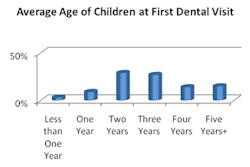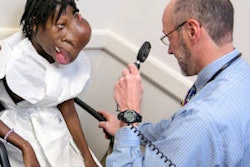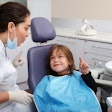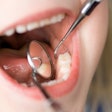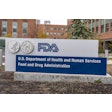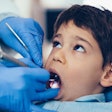Of healthy urban children surveyed in Toronto, less than 1% had received dental care by the recommended age of 12 months and less than 2% had seen a dentist by the age of 24 months, according to a new study in Pediatrics (May 5, 2014). In addition, of the more than 2,500 children around age 4 who were surveyed from 2011-2013, almost 40% had never been to a dentist.
According to the study, by Jonathon Maguire, MD, a pediatrician and researcher at St. Michael's Hospital in Toronto, children most susceptible to caries were least likely to receive early dental care.
The children were part of TARGet Kids (The Applied Research Group for Kids), a collaboration between doctors and researchers from St. Michael's Hospital and the Hospital for Sick Children in Toronto. The program follows children from birth with the aim of preventing common problems in the early years and understanding their impact on health and disease later in life.
In the study, those children who had never been to a dentist were generally of younger age, had a lower family income, longer bottle use, and a higher daily intake of sweetened drinks such as juice. The odds of never having visited a dentist increased by 20% for each 1-cup increase in the amount of sweetened drinks consumed daily,
Prolonged bottle use, especially at night, and sweetened drinks are suspected risk factors for caries because the carbohydrates in the beverages promote the growth of the bacteria that cause caries, Dr. Maguire said.
Among children who had been to a dentist, almost a quarter had at least one cavity. In these children, older age, lower family income, and East Asian maternal ancestry also were associated with having one or more cavities.
Caries can cause pain in children and also contribute to feeding problems, poor nutritional status, and behavioral problems, Dr. Maguire said.
"It's one thing for primary healthcare providers to be recommending early preventive dental care, but for many families this is unrealistic," Dr. Maguire said. "Publically funded universal early preventive dental care just makes sense."
Dental care is not part of Canada's universal healthcare system and, as in the U.S., it is primarily provided in private-practice settings on a free-for-service basis.





